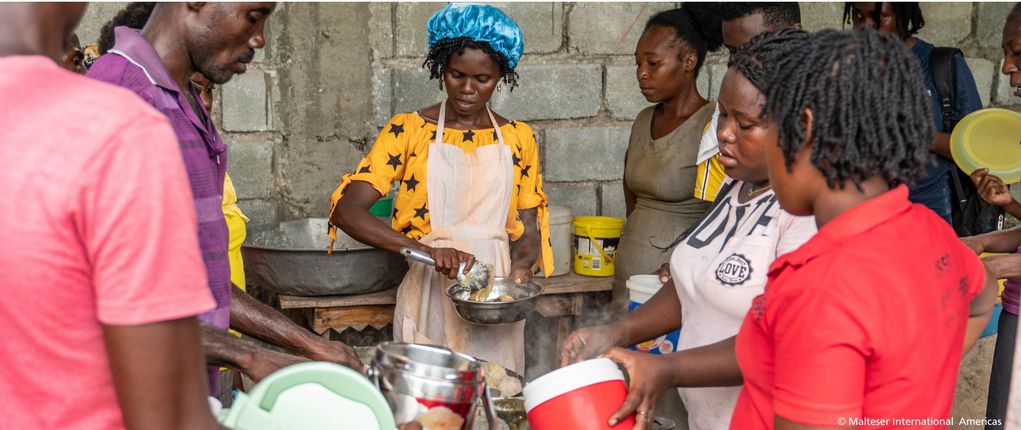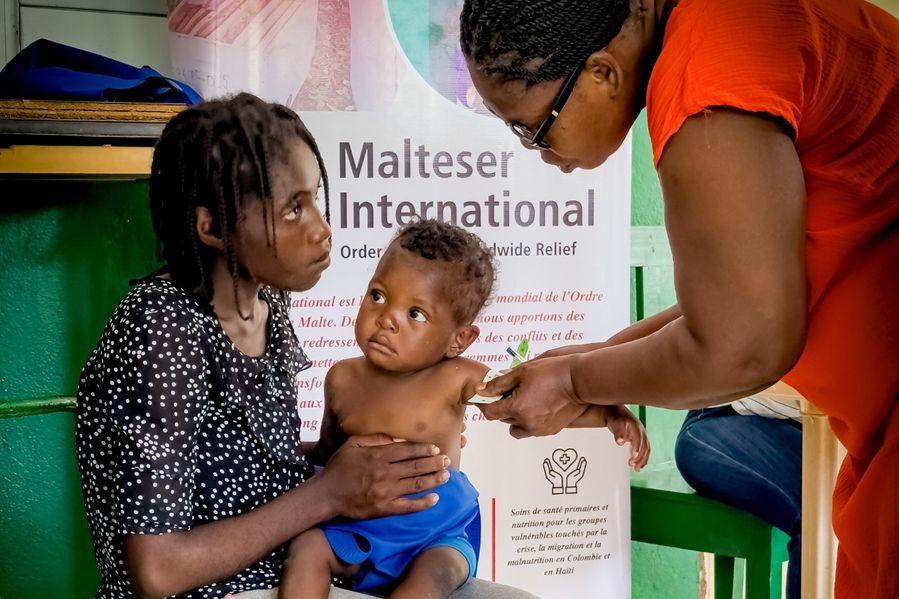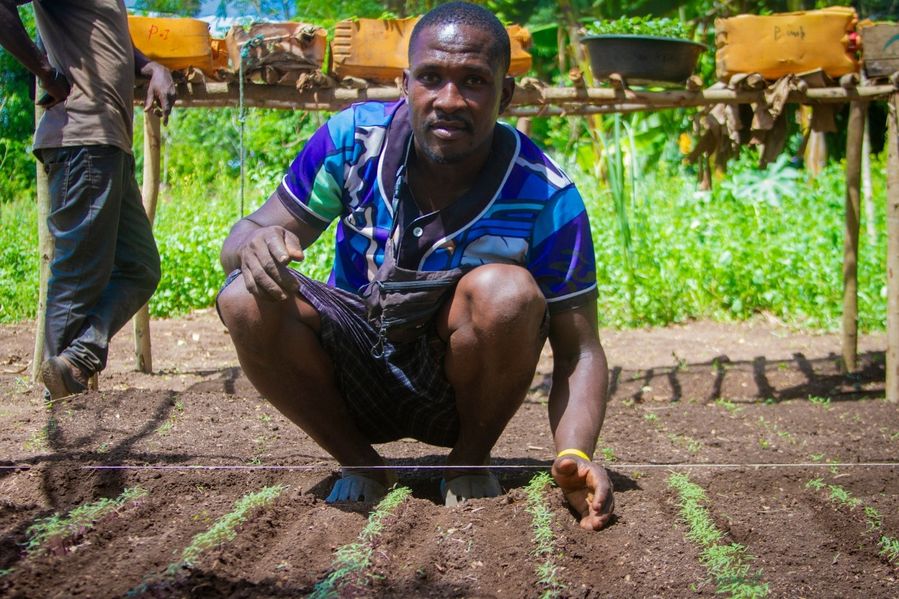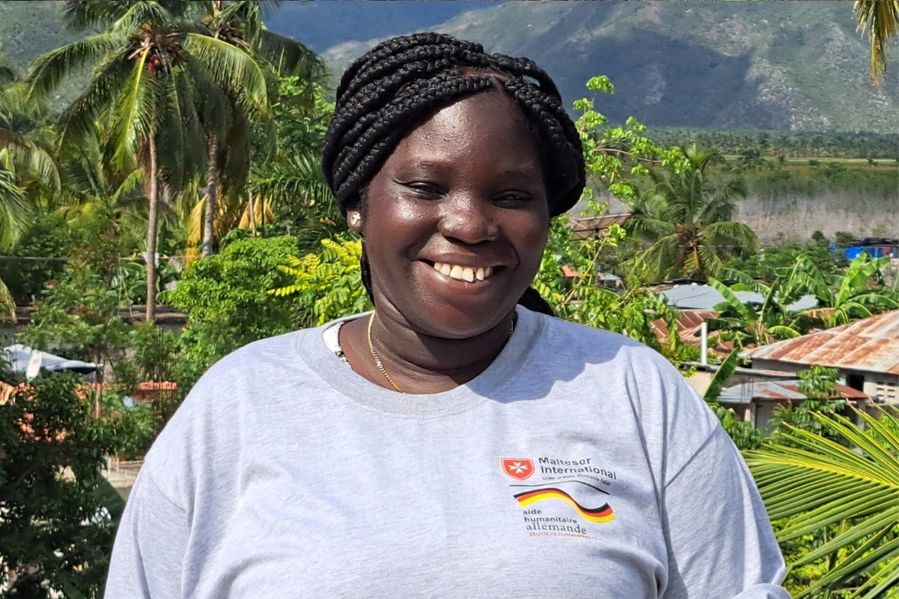
Fighting hunger

The political upheaval and escalating gang violence since March 2024 have once again drastically worsened living conditions for the people of Haiti. Closed borders and road blockages are hindering the availability and circulation of essential goods – even humanitarian relief goods have been confiscated or stolen by gangs. Amidst the chaos, teams from Malteser International (MI) are working as hard as possible to maintain vital relief efforts.
For over a year now, Haiti’s population has had to rely almost exclusively on their own resources, and those are very scarce: according to the World Food Program, more than 4.97 million Haitians were affected by food insecurity in March 2024. “Hunger is growing since the food production cannot respond to the increasing needs in regions where many people have fled to,” reports Yolette Etienne, Partner and Program Coordinator for MI in Haiti and a native Haitian herself. According to IOM, over one million people are displaced within the country – more than half of them are children. Etienne adds: “As a culture, we never lose hope. But the dark is very deep right now.” Working together with those most affected by hunger and malnutrition, MI has two projects in Haiti focusing on food security and nutrition.
Identifying need

While widespread child malnutrition is a heartbreaking reality in Haiti, it is often challenging to identify the families most affected. MI works directly with community health centers to reach children as well as pregnant and breastfeeding women. In this way, MI’s staff is able to identify and support more people with essential medicines and nutritional supplements. In 2024, selected households also received cash assistance to bridge particularly insecure food situations.
Tools for a healthier future
To prevent malnutrition, MI empowers families and communities with the knowledge and resources to achieve self-sufficiency through nutritious food. Cooking demonstrations teach participants the essentials of healthy eating and how to make the most of locally available ingredients. MI also equips communities and small-scale farmers with seeds and livestock as well as tools and expertise. This enables them to use husbandry, increase yields, and create family and community gardens with a diverse mixture of crops that satisfy their nutritional needs. By selling surplus crops and meat locally, families can strengthen both their income and the health of their communities. At every step, MI places a particular emphasis on equipping communities with the tools and know-how to sow a more resilient future for themselves.









